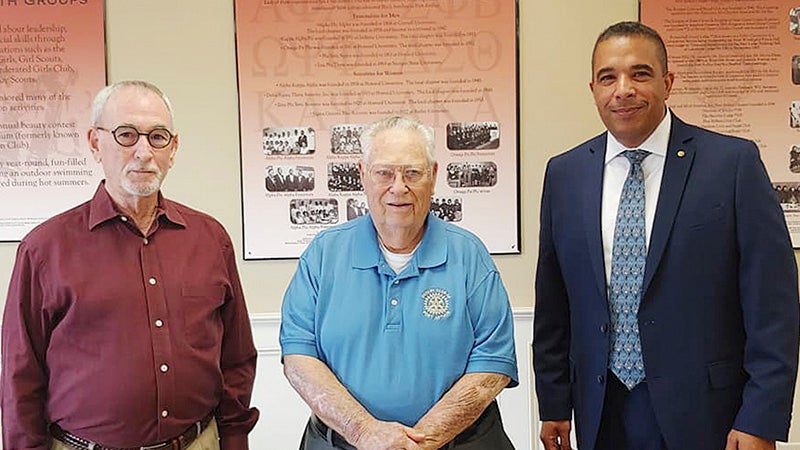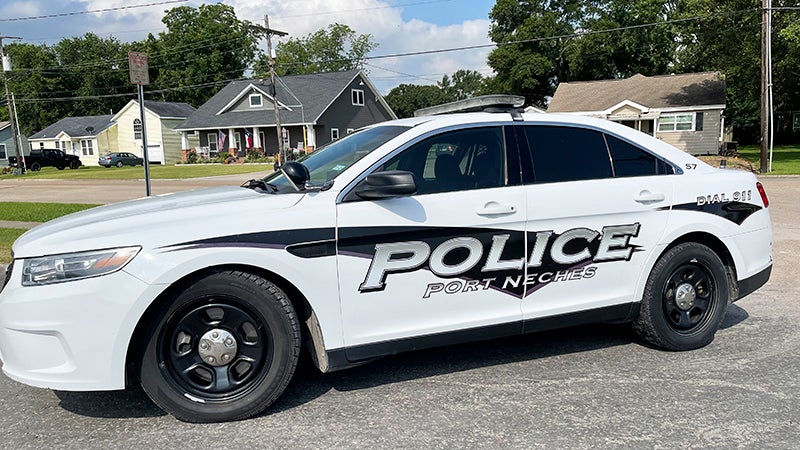Celebrate Labor Day cautiously, officials say
Published 11:49 am Monday, September 3, 2007
By Amy Moore
The News staff writer
Labor Day grocery list: hot dogs, hamburger buns, charcoal, beer. Check, check, check, check.
Each year, Texans mark the Labor Day holiday with backyard cookouts and ice-cold beer. Alongside the Fourth of July and Memorial Day, Labor Day is one of the busiest sales periods for beer in the United States.
The long weekend is also busy for Texas Highway Patrol. Texans planning to celebrate the last three-day weekend of the summer should know that the Texas Highway Patrol and local law enforcement officers will be out in full force looking for people who are driving while intoxicated (DWI). During the Labor Day weekend — Aug. 31 to Sept. 3 — all available state troopers, as well as extra officers from Beaumont and Port Arthur Police Departments, will be out on Texas roadways in support of the “Drink. Drive. Go to Jail.” program.
“We are serious about enforcing this law,” Col. Thomas A. Davis Jr., director of the Texas Department of Public Safety, said. “Too many innocent people are killed every year in this state when drivers choose to consume alcohol and then operate a motor vehicle. We intend to do our part to find those intoxicated drivers and get them off the road.”
Additional Jefferson County Sheriff’s Deputies will also be working during this period to enforce Texas DWI laws.
“Please be aware of the blood alcohol content law of .08 percent. If you are drinking, please designate a non-drinking person to operate your vehicle,” said Brent Weaver, assistant to Jefferson County Sheriff Mitch Woods, in a media release from the Sheriff’s Office.
During last year’s Labor Day weekend, DPS troopers arrested 887 people across the state for driving while intoxicated. According to the National Highway Transportation Safety Administration, there were 17,602 alcohol related fatal wrecks in the U.S. last year. Over 1,600 of those wrecks occurred in Texas and largely among the age group of 21 to 34-year-olds.
Punishments for the crime can lead to major fines and years in prison.
First time offenders face a fine not to exceed $2,000 and/or a jail term of 72 hours to 180 days. Other punishments include participation in an alcohol education and treatment program even if probation is granted and a license suspension from three months to 1 year.
For a second offense, the fine increases to up to $4,000 and/or a jail term of 30 days to one year. A mandatory 72 hours in jail is a possibility even if probation is granted as well as license suspension from six months to two years.
However, three time offenders face fines not to exceed $10,000 and a prison term of two years to 10 years. Law breakers are looking at a mandatory jail term of 10 days even if probation is granted and license suspension from six months to two years.
In addition to intoxicated drivers, troopers will be looking for speeders and those who are not wearing seat belts as required by law.
The Texas DPS also is a participant in Operation CARE-Combined Accident Reduction Effort-a nationwide effort by police agencies to reduce fatalities on major interstate highways during holiday weekends.
Motorists on the water should be careful as well. The Texas Parks and Wildlife Department has issued warnings that they expect higher-than-average numbers of boaters on the water for the Labor Day weekend.
“Operate safely and equip the boat with proper safety equipment to avoid getting a ticket,” Maj. Alfonso Campos, TPWD’s chief of marine enforcement, said. “The most serious consequence of being unsafe on the water is that someone dies. That’s something you can’t ever undo or make right. It’s a tragedy for everyone involved.”
Campos urged boaters to take a few simple steps to stay safe on the water during the upcoming holiday weekend:
• Wear a U.S. Coast Guard-approved personal flotation device, also known as a PFD or lifejacket.
• Avoid alcohol. At the very least, designate a sober driver for the lake or bay and for the ride home.
• Operate your boat at a safe speed; what might be safe in some places or in some conditions might not be safe in others.
• Keep a proper lookout — for hazards in the water, for the wakes of other boats, and for swimmers and water-skiers.





